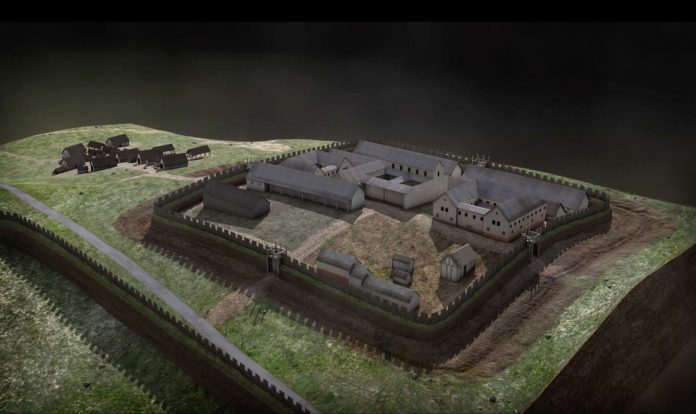A collaboration between Historic Scotland, one of the agencies who care for the Antonine Wall i, along with partners in Germany will see an interactive app developed for the ancient structure by April 2016. The app uses augmented reality technology to help visitors explore the World Heritage Site, which stretches some 60km across the Scottish Central Belt.
In the spirit of international relations, the development of the Antonine Wall app has only been made possible by the generous donation of data from the Bavarian Savings Bank Foundation and the Bavarian museums service, who created an earlier similar app in Germany, which allows visitors to access information on two parts of the Roman frontier in Bavaria. Historic Scotland are utilising the technology designed for this original app as the platform on which to base their updated Antonine Wall version.
The German Apps are available to download in i-phone (https://itunes.apple.com/de/app/main-limes-mobile/id446660434?mt=8 / https://itunes.apple.com/de/app/limes-middle-franconia-mobile/id614485463?mt=8 ) and android ( https://play.google.com/store/apps/details?id=com.pmedien.mainlimes ) versions
Augmented reality
The purpose is to demonstrate to visitors what the frontier sites would have looked like when they were in operation, applying augmented reality to bring these sites back to life.
The Antonine Wall app will draw on 3D laser scanning work carried out by the Scottish Ten Project, along with new scans and interactive 3D models of museum artefacts taken from the Wall, to give visitors a better idea of how points of interest such as the fort at Rough Castle, or the bath house at Bar Hill, would have looked when the Wall operated as a frontier.
Content will be commissioned and developed by Historic Scotland and the five local authorities along the line of the Wall: East Dunbartonshire, Falkirk, Glasgow City, North Lanarkshire and West Dunbartonshire Councils. The intention is to work with local museums to scan artefacts from the wall in order to create an accurate representation of what life was like, which visitors will be able to experience first-hand.
The first version of the app will be available for both i-phone and Android by April 2016.
The Antonine Wall website is available at www.antoninewall.org and contains a range of information on visiting the site, historical details, educational resources, and a database of finds from along the Wall. Some videos of digital models prepared so far are also available to view in the website’s Media Galleries under ‘Reconstructions’.

